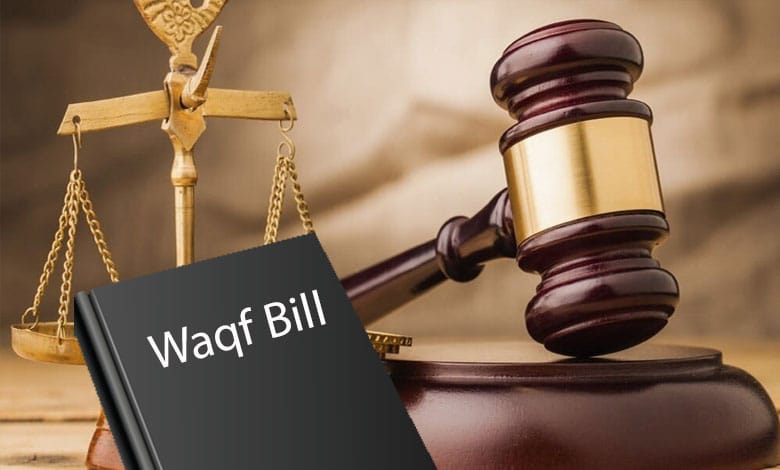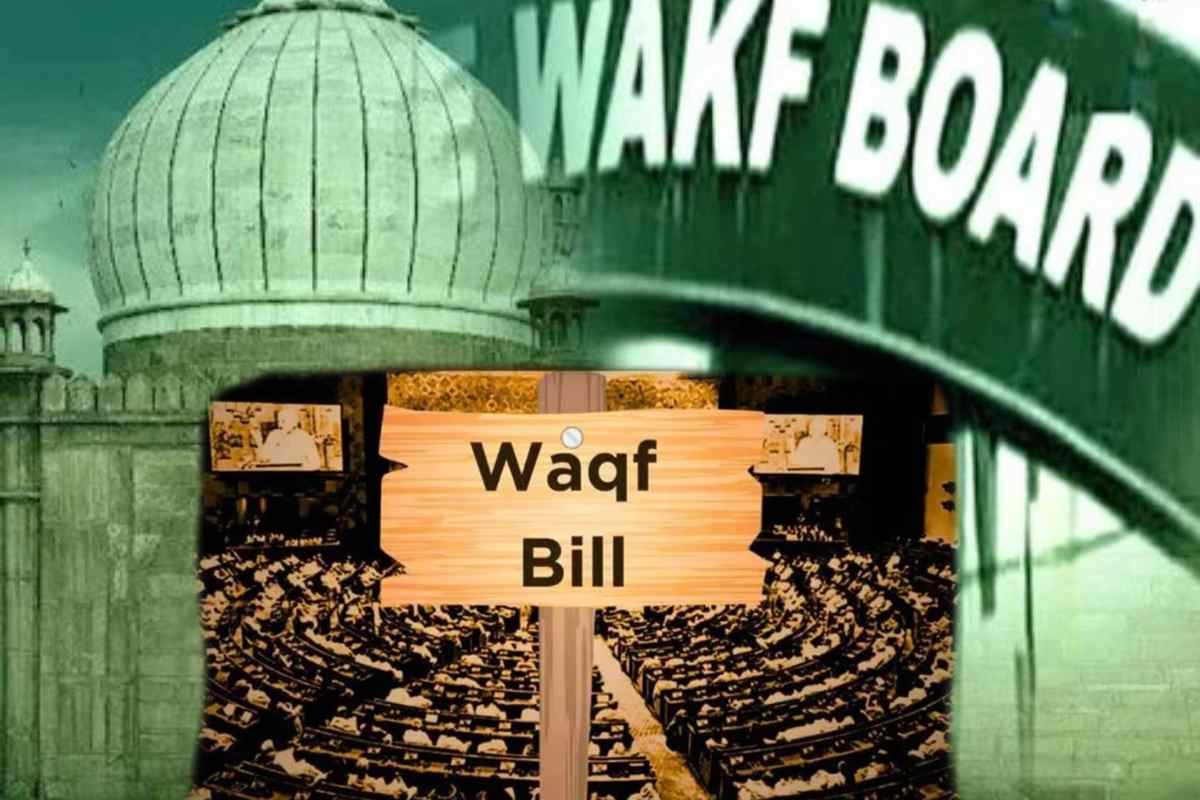– Abu Tasnim
Introduction
The conflict between right and wrong, belief and disbelief, Tawheed and Polytheism is eternal. Over the ages, the falsehood has been using ever-innovative tactics to resist the Truth. Anti-Islamic forces are always active against Islam and the believers. We are largely aware of the conspiracies and actions of the BJP government and its allied Hindutva groups against Islam and its followers over the past decade. In 2024 Lok Sabha election, Muslims sought to counter the BJP by supporting secular political parties, reflecting on the challenges of the past decade. While they were unable to fully thwart the BJP’s influence, the party did not achieve single majority, unlike in the previous two elections. As a result, BJP had to form the government in alliance with some other like-minded parties. Muslims expected that the BJP government will not be able to do anything easily in this session like in the previous two sessions. But since the formation of the BJP-backed NDA government, the number of conspiracies and persecution against Muslims in India has risen significantly. Incidents of mob lynchings, beatings, bulldozing homes and attacks on mosques have largely increased. Their recent target is on Muslim Waqf properties. The government has initiated the process of amending the Waqf Act in the name of resolving disputed properties and ensuring the rights of women. The matter has already been raised in Parliament and after much dramatic debate, it was referred to the ‘Joint Parliamentary Committee’. The Joint Parliamentary Committee (JPC) invited public opinion. In this situation it is important to know about the Waqf board and the Waqf Amendment Bill 2024.
Concept and Significance of Waqf
Waqf is an Arabic word. Literally, it means confinement, prohibition etc. i.e. wealth whose ownership is prohibited. In Islamic terms, waqf is the dedication of one’s own assets for religious purposes in perpetuity without any claim. According to the definition provided in the Indian Muslim Waqf Validation Act of 1913, a waqf is a perpetual endowment made by a Muslim, designating a portion of their property for a purpose deemed religious, sacred, or beneficial under Muslim law. In simple words, Waqf property is movable or immovable property that has been given in the name of Allah and that property is used for service purposes but cannot be transferred.
Features of Waqf
- It is a permanent system i.e. cannot be done for a fixed period
- It comes into effect immediately and cannot be suspended or deferred under any circumstances
- This is an irrevocable legal agreement
- Waqf property can never be confiscated.
Importance of Waqf according to Islamic Shariah
Waqf is Shariah-compliant by the Sunnah of the Prophet (PBUH) and the Ijma’a of the Ummah. It is narrated in Sahih Bukhari and Muslim – “Umar Ibn Khattab (R.A.) acquired some land in Khyber. He came to Rasulullah (PBUH) for advice about this land and asked, ‘O Rasulullah! I obtained some of the best land in Khyber, which I had never seen before. What do you order me in this regard? The Messenger of Allah (PBUH) said, “If you wish, you can bind the original property of the land to waqf and donate the produced crops.” Umar Ibn Khattab (R.A.) bequeathed it as Sadaqah (Waqf) on the condition that it cannot be sold, it cannot be donated, and no one inherits it”. (Sahih Bukhari – 2586) As a result, Umar (R.A.) gave charity to the needy, relatives, freed slaves, travelers and guests in the way of Allah. The narrator also says that there is no blame on the one who becomes its caretaker to eat as prescribed without accumulating wealth. Jabir (R.A.) said, all the companions of the Prophet (PBUH) who were able to donate, did waqf in the name of Allah.

The Joint Parliamentary Committee (JPC) cleared the Waqf Amendment Bill to be presented in the Parliament with trivial changes mostly suggested by the members of the ruling party, according to Media Reports
History of Waqf in India
The practice of Waqf dates back to the time of our beloved Prophet Muhammad (PBUH). He encouraged donating wealth in the way of Allah for the welfare of people so much that the Sahabah used to waqf many properties in the way of Allah. Hazrat Umar (RA) was the first to waqf the property. Since the arrival of Islam in India, the trend of property waqf started among Muslims from the time of Feroze Shah Tughlaq (1351-1388). He established hospitals during his reign and people donated their property to provide free treatment and medicine. People also used to donate Madrassas, and the famous Ferozshahi Madrasa was also established during this time. During the reign of Shershah Suri (1529-1540) the waqf system became more organized and around 17 thousand Musafirkhanas were established which were under the waqf system. Emperor Jalaluddin Akbar (1556 – 1605) also tried to improve the waqf system, focusing more on the maintenance of waqf properties in particular. Luxurious buildings were constructed on these lands which further enriched the waqf’s wealth. Even during British colonial rule, Muslims continued to dedicate their land for waqf. Muslims not only devoted their lives to India’s independence but also donated their property to free the nation from British rule. During Mahatma Gandhi’s non-cooperation movement, numerous schools, colleges were established on land given as waqf by the Muslims. Apart from building mosques and madrasas to promote education, religious awareness and training the youth of the country, income from waqf properties was also used for the needs of India’s freedom fighters. Even today the offices of various government and political parties in many states are located on waqf properties donated by Muslims.
Waqf Acts & Waqf Board
The Waqf Act was passed by Parliament in 1954 to ensure what would happen to the properties of Muslims who had migrated to Pakistan after the partition of India. The Act was subsequently repealed, and a new Waqf Act was passed in 1995. This Act gives more power to the Waqf Board. The Act was amended in 2013 and empowered the Waqf Board to identify Waqf properties. In legal terms, the Waqf Board is the entity in charge of the Waqf property. A total of 32 state level waqf boards are there in India. According to the data of ‘Waqf Management System’, the Waqf Board currently owns a total of 8,54,509 properties spread over more than 8 lakh acres of land.
What amendments does the government want to bring to the Waqf Act?
- The waqf properties should be mandatorily registered with the District Collector’s office, so that proper valuation of the property can be done.
- If any government property has been designated as ‘Waqf property’ either prior or after the enactment of the Act, the amendment will result in its status as Waqf property being revoked. The District Collector will decide whether it is waqf property or government land. That decision will be final.
- After taking the decision, the district collector can make any changes in the revenue record of that land and can report to the state government. The said property cannot be treated as waqf property until the report is submitted to the State Government.
- Any dispute over the decision of the Waqf Board will be appealed to the High Court.
- Even though there were no documents, waqf properties could be identified verbally. The amendment states that if there is no waqfnama i.e. document, the waqf land will be considered as disputed.
- The Comptroller and Auditor General of India (CAG) can audit waqf properties at any time, a power vested in the central government in the new amendment.
- Non-Muslim and women members should be included in the Waqf Board.
- At present there are two separate waqf boards, Shia and Sunni. But the new amendment bill proposes that separate waqf boards should be formed for Shia faction Borha and Agakhani communities as well.

The Waqf Amendment Bill is the latest setback in the long list of systemic persecution efforts against Muslims in India
Why should Muslims oppose this bill?
1) Waqf Board is established to ensure the management and maintenance of Muslim Waqf properties. It was important to give freedom to the Waqf Board for the protection of Waqf properties and their proper utilization. But the autonomy of the Waqf Board may be seriously affected by the Waqf Amendment. There is also a possibility that the government will interfere in the management of the Waqf Board and misuse these properties.
2) Abolishing the condition of being a Muslim in the appointment of board members will be a big problem for Muslims. The management of waqf property should be in the hands of Muslims to properly use and protect the religious and charitable purposes of the property. If non-Muslims are included in the waqf board, there is a risk of changing the purpose of the waqf and may lead to misuse of the property.
3) The government has also mentioned in the amendment bill the representation of women and weaker sections in Waqf Boards and Councils. But the rights of women and the weak are already protected in Islam. Hence, there is no need to single out women and weaker sections. The government wants to fulfill the real purpose in the name of women. Many have also said that ‘the government is making such amendments in the name of neutrality and equal rights, but the real intention is to increase the government’s control over waqf properties’. The amendment regarding representation of women and weaker sections can also be considered as an attempt to mislead Muslims.
4) There is a possibility of confiscation of waqf property by the government through this amendment. Waqf properties such as mosques, madrasas, graveyards and other charitable institutions are very important to Muslims. If this amendment bill is passed, waqf properties will come under government control and Muslims will be deprived of these properties. Many waqf properties in some states including Punjab and Haryana are under government control. More than 60% of waqf properties are already encumbered with litigation, so if the amendment bill is passed, it will become more difficult to get these properties back.
Responsibilities of Indian Muslims
1) Creating awareness is the first level of protest. So, it is our responsibility to make the Muslims of our respective areas aware of Waqf and its importance in light of the Islamic Shari’ah, the new Waqf Amendment Bill and its impact on Muslims.
2) Protest against this amendment bill unitedly irrespective of party and organizational affiliation.
3) To raise voice to strengthen the Waqf Board.
4) To raise voice against whoever (be it Muslim or non-Muslim) is misusing waqf property and try to rescue the lands of waqf property which are being identified as government land.
5) Above all, not to deprive Muslims of this property in any way and to protest this bill with all possibilities.
It is the religious responsibility of Muslims to protect waqf property and mosques and madrasas built on these properties more than their lives. Reliance of Muslims on secular political parties and treating them as friends has always been considered a wrong move. Because they have never come forward to protect Islam and the lives and properties of Muslims but rather played a role in damaging them. One thing Muslims should always remember is that “Al Kufr Millatun Wahidah” means ‘all Kufr is one nation’, the difference is in their style of approach. Any matter of Deen, be it Waqf property, Azaan, Namaz, Hijab or the lives and property of Muslims, we must act unitedly and rely only on Allah SWT as He says in the Qur’an “The believers should rely only on Allah”- (Al-Imran:160).

